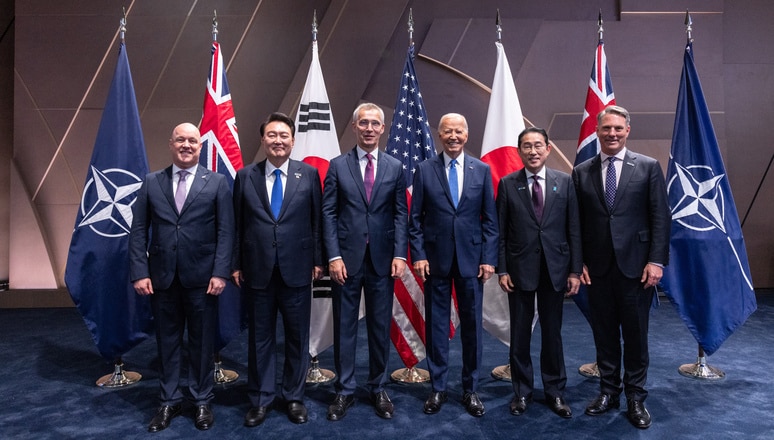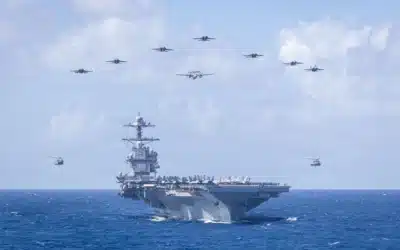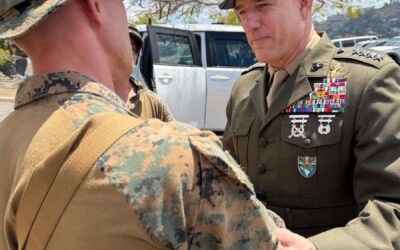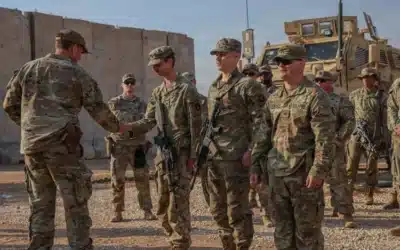The North Atlantic alliance agreed to step up its military presence in the Indo-Pacific to address a perceived threat from China. The bloc is using a gathering to mark its 75th anniversary to expand its presence in China’s near-abroad, a move sure to anger the People’s Republic.
On Thursday, the leaders of the 32 NATO members signed onto a statement that blasted Beijing. “The People’s Republic of China’s (PRC) stated ambitions and coercive policies continue to challenge our interests, security and values.” It continues, “The deepening strategic partnership between Russia and the PRC and their mutually reinforcing attempts to undercut and reshape the rules-based international order, are a cause for profound concern.”
The statement laid out a slate of complaints, claiming China provides Russia with crucial support for the war in Ukraine by exporting so-called “dual use” material. “China has become a decisive enabler of Russia’s war against Ukraine through its so-called ‘no limits’ partnership and its large-scale support for Russia’s defense industrial base,” it added.
Officials from several NATO states have insisted on a more confrontational approach towards the PRC. Last week, US Secretary of State Antony Blinken said, “Increasingly, partners in Europe see challenges halfway around the world in Asia as being relevant to them, just as partners in Asia see challenges halfway around the world in Europe as being relevant to them.”
A Swedish official also recently suggested that a more bellicose stance towards China could help to pressure Donald Trump to become more supportive of the alliance should he win the upcoming election. For months, the bloc has sought methods to “Trump-proof” massive military assistance to Ukraine in anticipation he will defeat Biden in November. The former president has vowed to immediately end the conflict if he returned to office, but has not explained how.
On Tuesday, White House National Security Advisor Jake Sullivan announced that NATO and its Indo-Pacific partners – New Zealand, Japan, South Korea, and Australia – will launch four new joint projects. Those initiatives will cover Ukraine, artificial intelligence, disinformation and cybersecurity.
Outgoing NATO Secretary-General Jens Stoltenberg and President Joe Biden met with the leaders of the four Indo-Pacific states during an alliance summit in Washington on Thursday. The bloc “will address our shared security challenges, including Russia’s war against Ukraine, China’s support for Russia’s war economy, and the growing alignment of authoritarian powers,” Stoltenberg said. “In response, we must work ever more closely together to preserve peace and protect the rules-based international order.”
Beijing reacted sharply to the NATO statement, and has repeatedly slammed the bloc’s increasingly hostile stance. “NATO hyping up China’s responsibility on the Ukraine issue is unreasonable and has sinister motives,” government spokesperson Lin Jian said at a daily briefing. He argued NATO’s “so-called security” concerns allowed it to trample the legitimate interests of other nations.

































